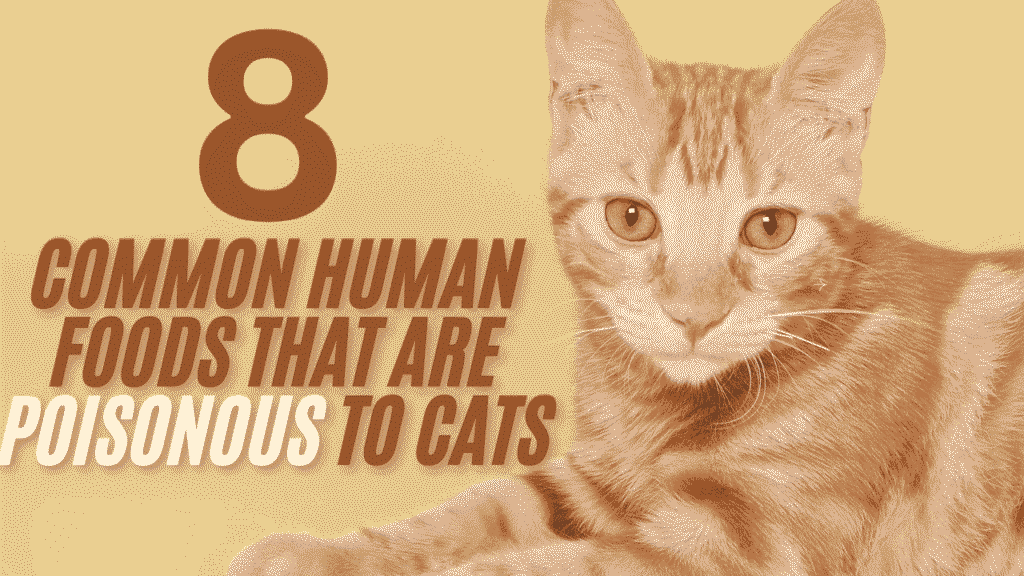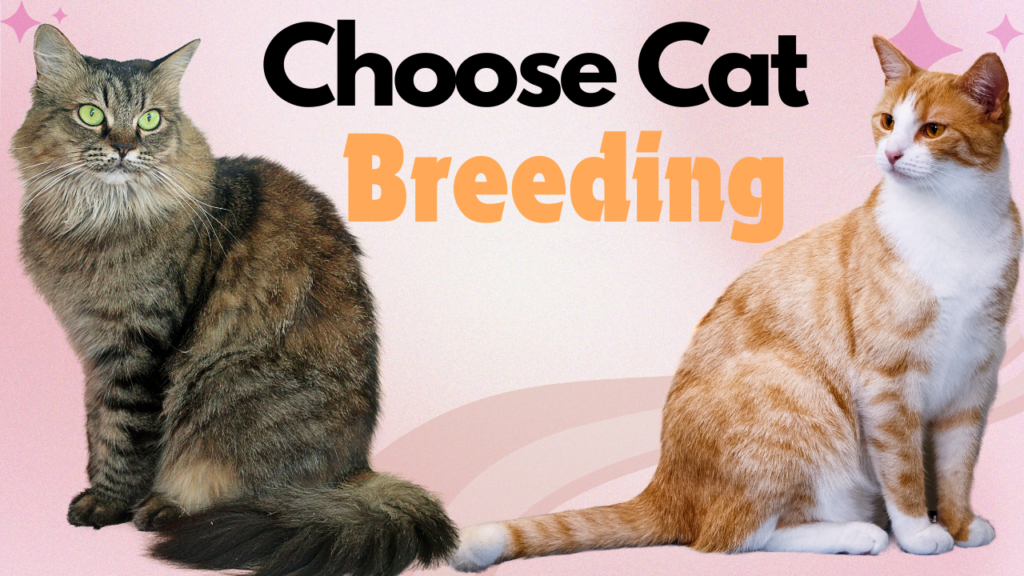cats are cherished pets, famous for their inquisitive personalities and refined tastes. However, certain human foods can pose risks to their health. Some foods we enjoy daily can pose serious risks to our feline friends. In this article, we’ll explore 8 common human foods that are poisonous to cats and explain why they should be avoided at all costs.
1. Chocolate
Chocolate is one of the most well-known toxic foods for pets, and cats are no exception.it contains theobromine and caffeine, two substances that can be toxic to cats.Even a small amount can cause symtoms like vomiting, diarrhea, rapid heart rate, and, in severe cases, seizures or even death.
Why is chocolate dangerous for cats?
- Theobromine is metabolized slowly by cats, leading to toxic accumulation.
- Dark chocolate and baking chocolate have higher concentrations, making them more dangerous.
What to do if your cat consumes chocolate:
if you think your cat has eaten chocolate, reach out to your veterinarian without delay. Early intervention can save your pet’s life.
2. Onions, Garlic, and Chives
These ingredients, commonly used in cooking, are highly toxic to cats. They contain thiosulfate, a compound that harms red blood cells and may cause anemia.
Symptoms of onion or garlic poisoning:
- Weakness
- Pale gums
- Loss of appetite
- Rapid breathing
Even small amounts of onion powder, often found in processed foods, can be harmful. Always check ingredient labels before sharing food with your cat.
3. Grapes and Raisins
While the exact toxin in grapes and raisins remains unidentified, their consumption can cause acute kidney failure in cats.
Signs of grape or raisin toxicity:
- Vomiting within a few hours of ingestion
- Lethargy
- Decreased urination or complete inability to urinate
It’s crucial to keep grapes and raisins out of your cat’s reach, as even a small amount can cause severe health problems.
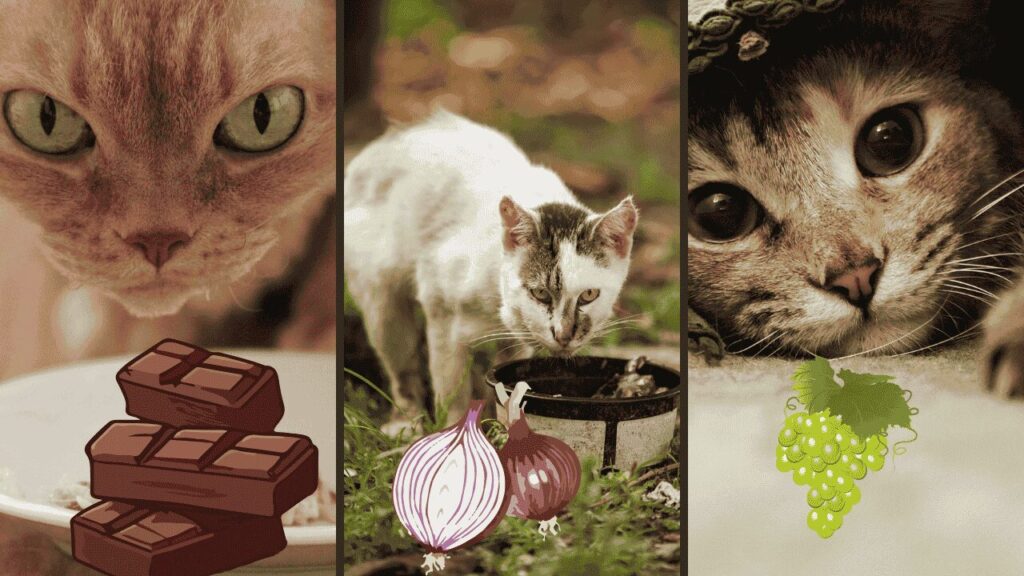
4. Alcohol
Alcohol is extremely dangerous for cats.even a tiny amount acan cause serious poisoning. Ethanol, the active ingredient in alcoholic beverages, affects a cat’s central nervous system.
Effects of alcohol on cats:
- Vomiting
- Disorientation
- Difficulty breathing
- Coma or death in severe cases
Cats are highly sensitive to alcohol, so never leave alcoholic beverages unattended where your pet can access them.
5. Caffeine
caffeine is present in cofee, tea, energy drink, and even certain medications. It acts as a powerful stimulant and can cause serious health issues in cats.
Symptoms of caffeine poisoning:
- Restlessness
- Rapid breathing
- Tremors
- Elevated heart rate
Given their small size, cats are particularly vulnerable to caffeine’s effects. Ensure all caffeinated products are stored securely.
6. Dairy Products
While many people associate cats with drinking milk, the truth is that most cats are lactose intolerant. Consuming dairy products can lead to digestive issues, including diarrhea and stomach cramps.
Why are dairy products harmful?
- adult cats lack enough lactase, the enzyme required to break down lactose.
If you want to treat your cat, consider lactose-free cat milk available at pet stores.
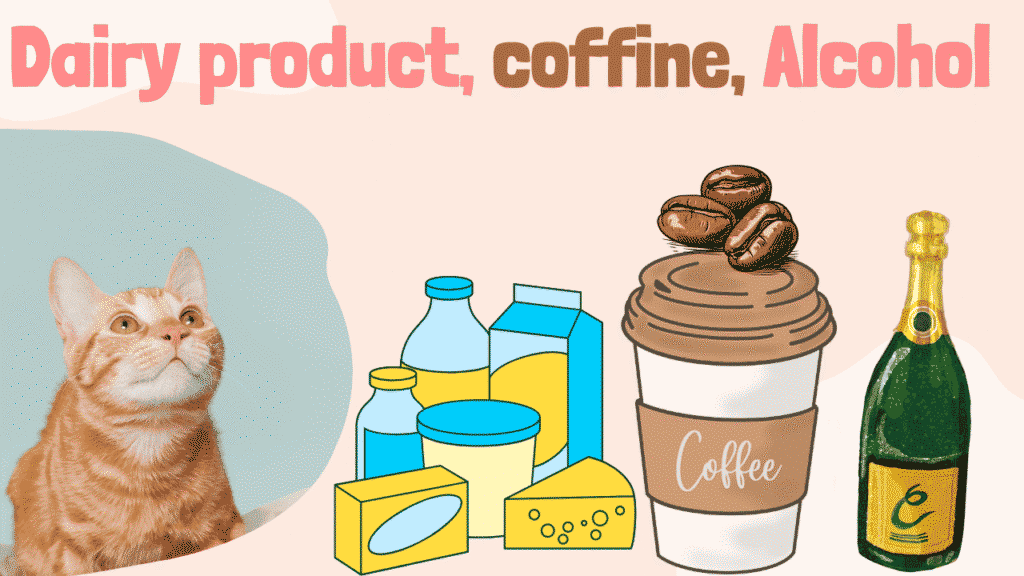
7. Raw Meat, Eggs, and Fish
While cats are obligate carnivores, feeding them raw meat, eggs, or fish can pose risks such as salmonella or E. coli infections. Additionally, raw fish contains thiaminase, an enzyme that breaks down thiamine (vitamin B1), leading to deficiencies.
Risks of raw food:
- Foodborne illnesses
- Vitamin deficiencies
- Potential for choking on bones
Always cook meat thoroughly and remove any bones before feeding it to your cat.
8. Artificial Sweeteners (Xylitol)
Xylitol, often present in sugar-free gum, candies, and certain baked goods, is extremely poisonous to cats. While its effects on cats are less studied than on dogs, it can still cause dangerous drops in blood sugar levels.
Symptoms of xylitol poisoning:
- Vomiting
- Loss of coordination
- Seizures
To ensure your cat’s safety, avoid giving them any products containing artificial sweeteners.
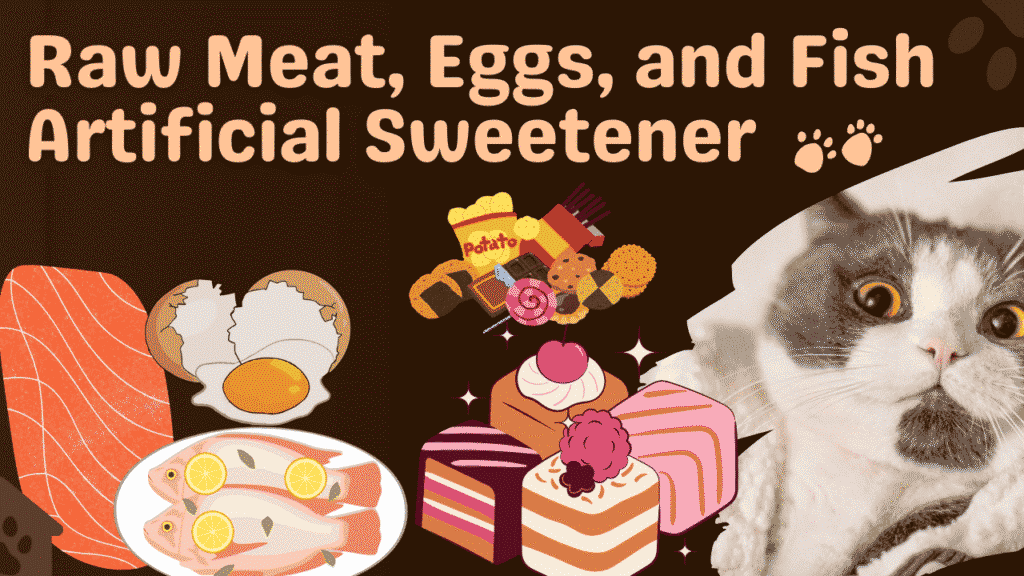
Preventing Accidental Poisoning
How to protect your cat:
- Keep all toxic foods out of reach.
- Educate household members about the dangers of sharing human food with pets.
- Store leftovers and packaged foods securely.
What to do in an emergency:
If you suspect your cat has ingested a toxic food, contact your veterinarian or an animal poison control center immediately. acting quickly can be crucial in protecting your cat’s safety.
By understanding these common human foods that are poisonous to cats, you can help keep your feline companion safe and healthy. Always prioritize their well-being and provide them with a diet specifically formulated for cats.
# : if you want to more information of this topic to click here see more
# : READ ANOTHER POSTS
1 : Can Chicken Nuggets Kill Cats? An In-Depth Analysis
2 : Can Cats Eat French Fries? A Comprehensive Guide for Pet Owners
3 : Can Cats Eat Mushrooms? Everything You Need to Know
4 : how to Measure Your Cat’s Heart Rate While Purring: A Comprehensive Guide

